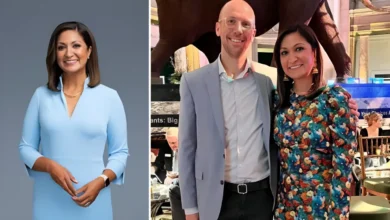Michelle Troconis: The Impact of Her Story on Modern Society

Introduction to Michelle Troconis and her story
Michelle Troconis is a name that has stirred conversations and debates across various platforms. Her story, marked by mystery and controversy, resonates deeply with many in modern society. As we delve into the intricate details of her case, it becomes clear that it touches on themes far beyond individual circumstances. It raises questions about gender roles, privilege, and justice in today’s world. With social media amplifying every twist and turn of her narrative, Michelle’s situation reflects broader societal dynamics worth exploring. Join us as we unpack the layers of her story and its profound impact on our perceptions and values.
The role of social media in spreading information about her case
Social media has transformed how we consume news, and Michelle Troconis’s story is a prime example of this shift. Platforms like Twitter, Facebook, and Instagram became pivotal in disseminating information about her case.
Instant updates flooded feeds as users shared articles, opinions, and personal insights. This rapid exchange created a sense of urgency that traditional media often lacks. People felt compelled to engage with the narrative unfolding online.
Moreover, social media allowed diverse voices to emerge. Advocates spoke out about issues surrounding gender roles, while others offered stark criticisms regarding privilege and justice in her situation.
The viral nature of posts ensured that discussions reached audiences far beyond local communities. Hashtags became rallying points for conversations around power dynamics in relationships, reflecting society’s broader challenges today.
As followers reacted emotionally to developments in Troconis’s case, it revealed how deeply intertwined digital platforms are with our understanding of events shaping modern life.

Discussion on the impact of her story on gender roles and relationships
Michelle Troconis story has stirred significant conversations about gender roles and relationships. It highlights the expectations placed on women in society and how these can shape perceptions of guilt and innocence.
Many view her as a symbol of both victimhood and agency. This duality forces us to question what we define as strength in women. Are they supposed to be nurturing, or can they embrace complexity?
Her case also challenges traditional notions of partnership. The dynamics between men and women are often painted with broad strokes, yet Troconis’s narrative reveals the intricate web of emotions involved in modern relationships.
Discussions surrounding her situation highlight biases within our judicial system, too. Society grapples with how privilege shapes outcomes for different genders, urging a reevaluation of fairness across the board.
As people navigate their thoughts on her experiences, new dialogues emerge regarding accountability, love, and betrayal in our evolving cultural landscape.
How her case highlights issues of privilege, power, and justice
Michelle Troconis’s story illuminates the complex dynamics of privilege and power in our justice system. Her case has ignited conversations about how socioeconomic status can influence legal outcomes.
Those with resources often navigate the judicial process more effectively. Access to top-tier legal representation can sway perceptions and decisions within courtrooms. This disparity raises questions about fairness for those without similar advantages.
Moreover, her situation underscores societal biases that often favor certain narratives over others. The treatment she received compared to less privileged individuals reveals glaring inconsistencies in how justice is administered.
The media portrayal also plays a role in shaping public opinion. Coverage can amplify or diminish someone’s perceived guilt, further complicating our understanding of justice as an impartial entity. These factors weave together a narrative that demands scrutiny and reflection from society at large.
The role of the media in shaping public perception of Michelle Troconis
The media’s portrayal of Michelle Troconis has significantly influenced public perception. Headlines and stories often focus on sensational details, painting her in a light that can distort reality. This approach captivates audiences but needs more depth.
Different outlets present varying narratives, with some emphasizing her connection to high-profile individuals. Such framing raises questions about how privilege plays into the overall story. The clickbait culture thrives on scandal rather than context.
Social media further amplifies these narratives, allowing misinformation to spread rapidly. Platforms become battlegrounds for opinions, where judgments are formed without all the facts.
Public sentiment shifts quickly based on what is trending online or in print. This creates an environment ripe for misconceptions and biases that overshadow complex truths surrounding her case and its implications for justice and accountability.
Lessons we can learn from this case and its effects on society
Michelle Troconis’s story powerfully reminds us of the complexities surrounding personal narratives. It encourages us to question our assumptions about individuals based on sensationalized media portrayals.
This case highlights the importance of critical thinking. When consuming news, it’s vital to dig deeper than surface-level details and understand the context.
Moreover, it underscores how societal norms influence perceptions of gender and power dynamics in relationships. The way her situation was framed reveals biases that persist in modern discourse.
We must recognize the responsibility that comes with sharing stories online. Social media can amplify voices but also contribute to misinformation if we are not careful about what we share or believe.
Conclusion: A call for a more nuanced understanding of individuals and
The story of Michelle Troconis has sparked widespread discussion and debate. Her case invites us to reflect on how we view individuals, particularly within gender roles and societal norms.
As her narrative unfolded across social media platforms, it revealed not just the complexities surrounding her situation but also society’s collective response. This modern communication landscape allows for the rapid dissemination of information, shaping public perception in real time.
Her experiences highlight critical issues such as privilege and power dynamics. They compel us to scrutinize our own biases and assumptions regarding justice. Media outlets’ portrayal of her case further influenced public opinion, often painting a simplified picture that fails to encompass all facets of reality.
This saga contains important lessons about empathy, understanding, and accountability. Society can benefit immensely from approaching individual stories with nuance rather than a judgment based solely on surface-level narratives.
As conversations continue around Michelle Troconis’s story, we must foster a culture that prioritizes depth over sensationalism—encouraging thoughtful dialogue that recognizes the complexity inherent in every human experience.




